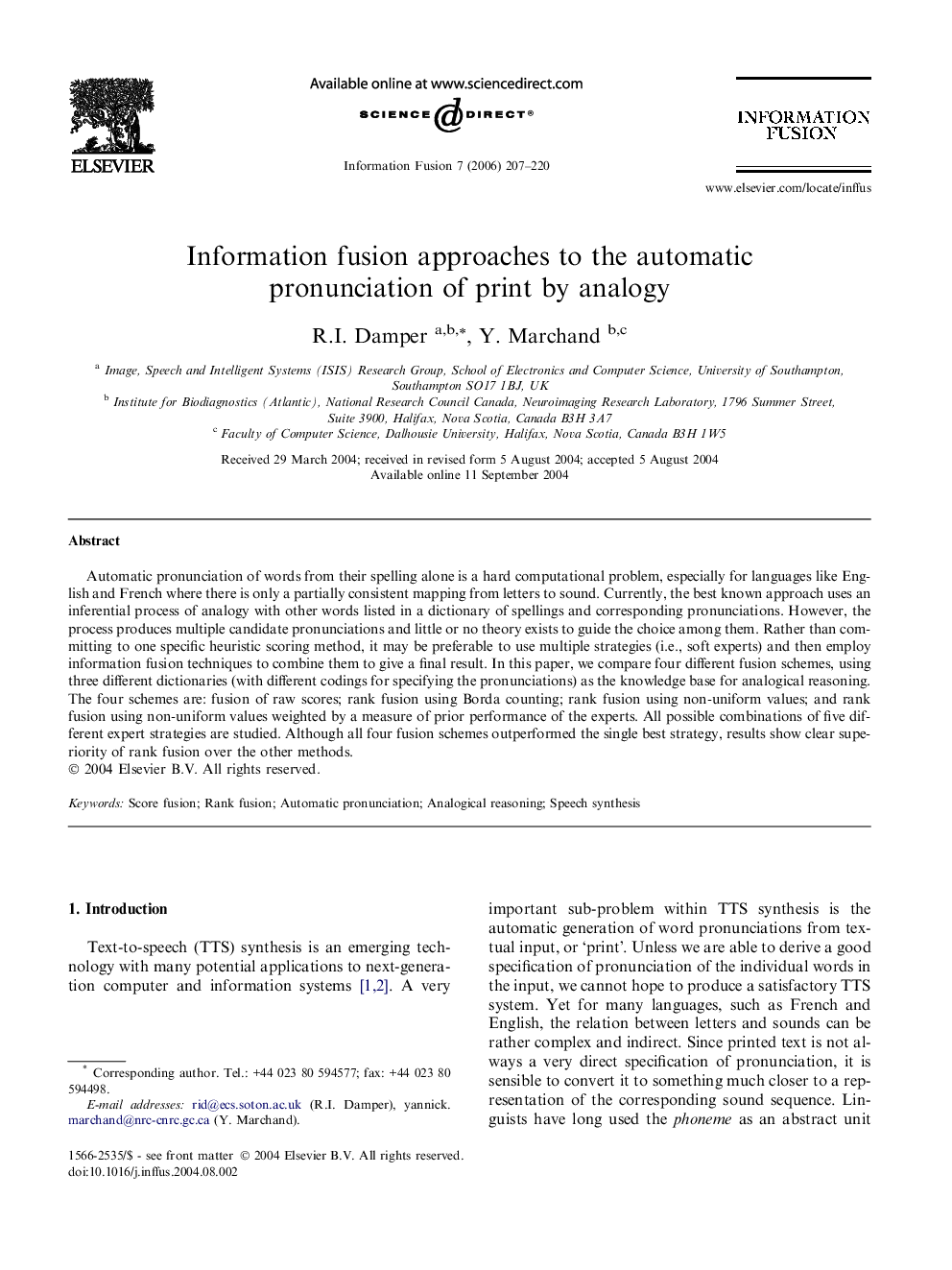| Article ID | Journal | Published Year | Pages | File Type |
|---|---|---|---|---|
| 528354 | Information Fusion | 2006 | 14 Pages |
Automatic pronunciation of words from their spelling alone is a hard computational problem, especially for languages like English and French where there is only a partially consistent mapping from letters to sound. Currently, the best known approach uses an inferential process of analogy with other words listed in a dictionary of spellings and corresponding pronunciations. However, the process produces multiple candidate pronunciations and little or no theory exists to guide the choice among them. Rather than committing to one specific heuristic scoring method, it may be preferable to use multiple strategies (i.e., soft experts) and then employ information fusion techniques to combine them to give a final result. In this paper, we compare four different fusion schemes, using three different dictionaries (with different codings for specifying the pronunciations) as the knowledge base for analogical reasoning. The four schemes are: fusion of raw scores; rank fusion using Borda counting; rank fusion using non-uniform values; and rank fusion using non-uniform values weighted by a measure of prior performance of the experts. All possible combinations of five different expert strategies are studied. Although all four fusion schemes outperformed the single best strategy, results show clear superiority of rank fusion over the other methods.
